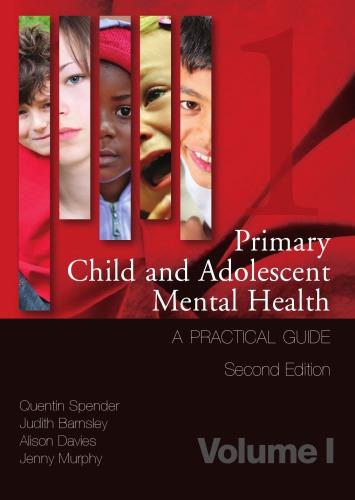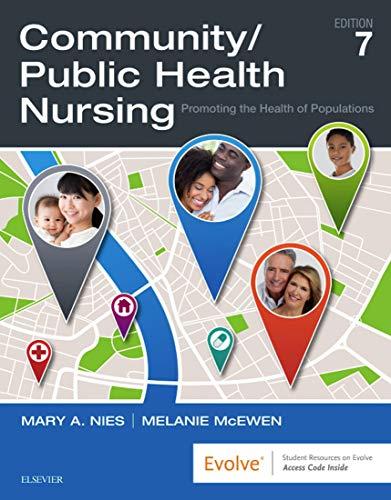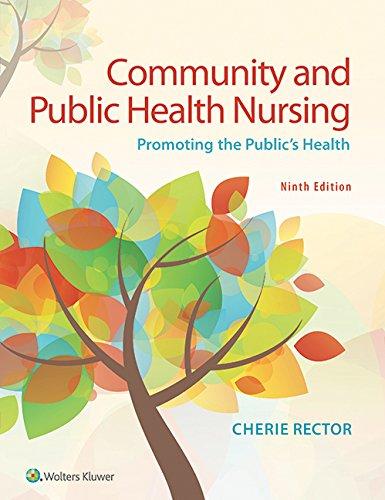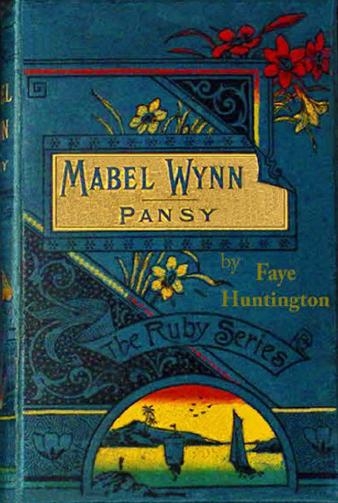MABEL WYNN.
CHAPTER I.
THE CONSECRATION.
"My all is on the altar."
WESTVILLE had a new sensation. Deacon Griffin, earnest Christian man as he was, ever ready to use tongue, hand and money for the cause of Christ, shook his head, and said he didn't know about these things. There was so much danger of falling into the ways of the world; the Church must be wary of innovations.
Then good Mrs. Culver had opposed the plan, and determined to stand aloof. What was the use in making a stir! They had gone on for years without such an affair, and for her part, she didn't believe in new-fangled notions.
However, in spite of strong opposition, a few brave hearts persevered and carried the matter forward, and Westville had its first "Sunday-School Institute." These few feeling the want of more labourers, sensible of their own want of knowledge as to the best mode of carrying forward the work, invited one whose life is devoted to the cause to give a course of instruction upon topics connected with the work, hoping to be themselves better fitted for their duties, and trusting that others might be led to enter the same field of labour.
Many, like Deacon Griffin, looked upon Sunday-schools as especially for children; some, like Mrs. Culver, clung to the old ways. As a child she had recited her seven verses Sabbath after Sabbath, without question or comment on the part of her teacher; brought her penny for the mission
fund, and carried home a library book, or perhaps a copy of the "Dayspring" or "Messenger," and had about as much idea as a kitten what all or any part of it meant; and she taught her class in very much the same way. True, in maturer years, the precepts and promises stored in her mind had an influence upon her heart and life. As if Christ's precious words were not for little children to carry in their hearts as well as in their memories!
In those three days, much work was done for the Master. With instruction, discussion and earnest talk were mingled many prayers and much praise. The interest growing, the audience increasing in numbers, until at the last session, the great church was filled to its utmost capacity, and many hearts were throbbing with emotion. New thoughts had found their way into the minds of gray-headed old men, and to some of them it now seemed a grand thing this idea of a whole congregation coming together for the study of God's word. And old men and women almost through with church-going, the middle-aged, busy fathers and mothers, and the young, enthusiastic and eager, pledged themselves to the work and joined in the consecrating hymn. It was grand and solemn, that chorus of hundreds of voices. Many of feeble faith were encouraged, slothful souls were quickened, while to some, it was the hour of a new and entire consecration to Christ. As the song died away, the voice of the leader, smooth and clear, filled the house.
"Father in heaven," he prayed, "we thank thee for this evidence that thou hast been with us, directing and guiding us by thy Spirit. We know not what vast results may grew out of our efforts to advance thy cause, and we are content to leave the knowledge with thee. Thou hast heard our solemn consecration. Wilt thou enable us to keep the vow? May we all feel its solemnity and importance, and may each of us be faithful to our promise. Wilt thou bless these thy children, who work together here? May they work hand to hand in Christian love and forbearance, illustrating in their lives the truths they teach. May they be patient and persevering, untiring and full of the spirit of devotion. May they have all needed wisdom and every Christian grace, and may thy blessing so crown their efforts that multitudes shall throng the streets of the beautiful city led into the upward way by these thy servants. And though we no more meet together here, at last, dear Christ, we shall be together and always with thee. Amen."
CHAPTER II.
WORK.
"O thou whose call our hearts has stirr'd!
To do thy will we come."
"I'm here," began Mabel Wynn, in her bright way, presenting herself promptly the next Sabbath at the superintendent's desk. "You know I am a fresh recruit. I shall make a poor show, but I'm ready for drill. Where shall I go?"
Mr. Clarke looked at her earnestly for a moment. He knew her only as the daughter of the richest man in Westville, a man who was prompt to serve Christ with his money, but whose time, strength and influence were given to the world. He knew that Mabel came to church regularly, dressed handsomely, and was a sort of a leader among the young ladies. He knew, too, that she was a professed friend of Christ, but he did not know the earnest and unselfish purpose of her heart to work for the Master. Mrs. Wynn called her daughter odd. "One of Mabel's freaks," or "just one of her odd whims," she would explain to her friends.
If to live for a purpose, if to do one's work with earnestness, if to seek out opportunities for doing good, if to carry the spirit of Christ into every day's living—in short, if to be a sincere, consistent Christian, if this is to be odd, then Mabel was odd. As a child she had been a Sunday-school scholar, but as she grew up, she had yielded to her mother's persuasions and discontinued her attendance.
"It was such an inconvenience," explained Mrs. Wynn. "So tiresome to remain after service, and such a trouble to send back the carriage. Thomas did not like it at all."
But now Mabel determined that circumstances must yield; fortunately Thomas had departed, and a very obliging Michael reigned over the stables.
Thus she stood ready and willing, while Mr. Clarke deliberated a moment. His first impulse was to send her to Dr. Eaton's class of young ladies, and this was just what she expected—indeed she had at first intended to take her place there at once, but some of her mother's teachings in regard to observing the proprieties under all circumstances, impelled her to report herself at headquarters. But they were short of
teachers; so many of those who had come in for the first time, had asked for a scholar's place, that old classes were overflowing and new ones had to be formed.
While Mr. Clarke deliberated, a scene of confusion across the room attracted his attention. A thought struck him. "Who knows but she may be able to do something with those boys? Anyway they must have a teacher to-day." And with a smile for the eager face before him, he nodded in the direction of the five unruly boys.
"Mr. Clarke," began Mabel, then stopped suddenly.
"Well?"
"Nothing. I forget that it is my business to obey a superior officer. I'll go."
As the opening exercises went on, Mabel had time to still her throbbing heart and lift her soul to God for help. She had not thought of becoming a teacher at once, and what to say or do first, was a puzzling question. She tried to remember what they did in those days so long ago when she went to Sunday-school. Then she tried to recall some of the instructions of the past week, but she could think of nothing that would exactly fit the case. Dissimulation was no part of her nature, and when the time came, she turned toward the class; but what a class it was!
Five bright-looking boys, combed and brushed and neatly dressed, but the element of quietness seemed entirely wanting. There they were—five bobbing heads, five pairs of elbows pushing this way and that, five pairs of shuffling feet, five pairs of eyes and ears, open and eager to take in any sight or sound that might be turned into fun. Evidently they understood all the boy-tricks in the catalogue. Now and then a head would be thrown back with a peculiar spasmodic jerk, and when the cause was looked for, another boy's arm would be found quietly resting upon the back of the seat, thrown lovingly around his neighbour's. Of course the owner of the arm had nothing to do with it. Suddenly the small boy at the end of the seat found himself on the floor, a concerted pushing along the line having brought about the catastrophe. There were pinching and nudging and treading upon toes, and winking and laughing, and much whispering. Altogether a scene of disorder. And these five active, eager minds were to be fed—those five souls to be led to Christ! What a work for some earnest disciple! No wonder that Mabel's heart almost quailed. But she said, simply and frankly,—
"Boys, Mr. Clarke has sent me here to be your teacher to-day, but I am not prepared to teach the lesson, and I don't know the ways of the school. You will have to teach me, I guess. How many have learned the lesson? All of you?"
There seemed to be something remarkably fun-provoking in the question, for the boys were very merry over it.
"Dear me, how they do act!" thought Mabel. "What shall I do with them?" But she kept all signs of her dismay out of her face, and put the question to them individually.
Perry Morse "hadn't looked at it." Henry Trafton "had not been there in a good many weeks, and didn't know what the lesson was." Lewie Amesbury had learned it. Herbert Bradford and Duncan McNair had only looked it over a little.
"Very well, Lewie, then you are the one to lead off. The rest of us will open our Bibles and do the best we can with reading and looking out the references."
But it turned out that there was no Bible in the class, except Mabel's. Here was a new trouble—no lesson, and no books to refer to! The next expedient was for the teacher to read a paragraph, and request the class to repeat it in concert; but their attempt to do this created much merriment, and seemed to attract the attention of those around them; so that plan was abandoned, and she simply read over the whole lesson, and tried to give a paraphrase of it. Then to Lewie,—
"What struck you most in the lesson?"
At this Henry giggled and whispered.
"Say, Lewie, do you hit back when you are struck? Fighting ain't allowed here."
Lewie gave a reproving nudge at his neighbour's sides, and looked steadily at his boots. Evidently he had not learned the lesson with reference to ideas, and Mabel was obliged to make her own points, and, as she afterward said, they were too hastily whittled to be very pointed. Yet the time slipped away pleasantly, and Mabel's parting word was—
"Well, boys, I'm glad I came. We've had a nice time; at least I have. Now, won't you study up the lesson for next Sabbath, and be sure to bring your Bibles?"
Mr. Clarke always kept an eye on those boys, and as he glanced towards them now and then he saw that they were a trifle less restless than usual, and that one or two seemed somewhat interested in what the teacher was saying. That was all he saw. He had been praying for a teacher for that very class, all the while trying to pick one according to his own idea of fitness, and one after another had failed until he almost despaired. As yet he had no thought that God had sent this young girl as the answer to his prayers, and during the week that followed this first Sabbath of Mabel's teaching, he sought out one whom he fancied would fill the place, and urged him to take the class, but was met by a decided refusal; and so it came about that another Sabbath found them teacherless. They were all prompt. Three of them had their Bibles. Perry Morse had forgotten his. Henry Trafton never owned one.
"I wonder who we'll have to-day?" said Perry.
"I don't know. Maybe Professor Mills," answered Duncan, while a laugh went round at the Professor's inability to cope with their fun-loving propensities.
"I wish we could have Miss Wynn," said Lewie.
"Oh, yes!" said Henry, sneeringly. "You like her, of course. She praised you a little."
"She didn't do any such thing. I'll leave it to the boys if she said one word that sounded like it," answered Lewie, with some spirit.
"Well, she looked it, anyway; but you needn't get wrathy over it. I don't care if she did, you are welcome."
"Don't quarrel," said Herbert; "I liked Miss Wynn because she didn't put on airs and pretend to be so very wise. She just talked pleasant, and the kind of talk that a fellow could understand. I vote for Miss Wynn."
"Well, Herb, go and ask Mr. Clarke, before he picks out somebody with a face as long as your arm and a voice to match."
Mabel had chanced to meet Dr. Eaton at the door and accepted his invitation to take a seat in his class, and here Mr. Clarke sought her.
"Dr. Eaton," he said, "those boys want Miss Wynn. I am sorry to take her away, and glad, too."
The colour mounted quickly to Mabel's forehead, and she exclaimed,—
"Why, Mr. Clarke, I really don't know how to teach."
"Can't help that! They want you, and if they can't have what they want, they won't stay."
"Miss Wynn," said the superintendent, when Sunday-school was over that day, "you'll have to keep that class!"
CHAPTER III.
OPPOSITION.
"I am with you alway."
MABEL'S friends exclaimed and protested against this new freak. Her father and mother insisted that her health was insufficient; that the tax upon her nervous system would be too severe; that she already had duties enough at home and in society to fill up her time. Mr. and Mrs. Wynn belonged to that large class of professing Christians, who, whenever the call comes for more labourers in the vineyard, talk largely of home duties and influence in society, the demands of their position, and the like, excusing their worldly-mindedness with this sort of twaddle about "the claims of society."
As for Mabel's health, an incessant round of parties, picnics, pleasure excursions, making calls and entertaining company, was never supposed to overtax her nervous system. It was only when she was compelled to step outside the world of fashion that her parents' anxieties were awakened. They never connected the days of languor, headache, and lassitude with late hours and excitement. The "claims of society" never overtax body or mind!
"But, father," said Mabel, "I think this is one of the duties I owe to society—to help those boys into right ways, if I can, so that they may be its ornaments when they get to be men."
"That's just what I object to!" interposed Mrs. Wynn. "Those boys! If you had chosen a class of sweet little girls, it wouldn't be quite so bad. But
those rough, uncouth boys! Why, they'll hang about you, step on your dress, use your fan, handle your parasol, speak to you in the street, and annoy you in a dozen different ways."
Mabel smiled at her mother's list of the unpleasant features of the case. It would be such a terrible thing to have Herbert Bradford or Lewie Amesbury lift his cap gracefully, as either of them knew how to do, and accompany the act with a smiling, "Good morning, Miss Wynn!"
Then, too, she remembered that young Mr. Cranson had stepped upon her dress at the picnic, and tore off a yard or two of ruffling, and Dr. Myers had played with her fan, as one or more broken splints would testify, and her mother had not seemed to look upon either as unpardonable offences. But young Mr. Cranson was the son of a millionaire, and Dr. Myers was— ah! Well, he was Dr. Myers! Perhaps he will speak for himself.
Mrs. Wynn continued, not noticing Mabel's amused look
"Besides, you won't be able to manage them. I've heard Mr. Clarke say it was the worst class in school. They have had I don't know how many teachers within the last six months. The last was Professor Mills. I shouldn't think you would undertake where he had failed."
It was true, that class of bright-eyed, eager-faced boys had the reputation of being the most unmanageable set in the school, and Mabel know it. She answered—
"Mother, I did not choose—" She hesitated. Should she speak of the entire consecration she had made of her young life to the cause of Christ? Would they understand her if she told them that she believed God had called her to that very class? It was only a moment: then she went on—
"If I give myself to the Sabbath-school work, or any other work for the Master, it is not for me to choose the place. If I am called to this post, I shall, in some way, be made equal to it."
"But, Mabel," continued her mother, "it will be so very inconvenient. You cannot walk home, and Michael will not like driving back for you. If you persist in this absurd notion, I suppose I shall have to give up going to church, for I cannot endure the fatigue of remaining to Sabbath-school."
"O mother! It won't be so bad as that. The church is only half-way to the seminary, and I used to walk to school and home again every day in pleasant weather, and I ought not to have grown so delicate in two years as to be unable to walk a quarter of a mile. I do it very often now when out calling or shopping."
"Yes, I know; but there will be rainy Sundays, and besides the dinner hour will interfere. Dear me! I do wish you would give up the ridiculous notion. Everything will be turned upside down if you persist."
Mabel was slightly amused at the idea of her mother's well-ordered establishment being so easily reversed. Then she looked grave as she thought if it were a music lesson, or a dancing lesson, or a croquet club, at any hour of any week-day, breakfast, dinner, or supper would speedily adjust itself to the arrangement. Of so much more apparent importance were these things than the grand work of saving souls, of training the young for the life in this world and for that which is to follow, and which is eternal! Dinner or the Master's work which shall take precedence?
"Mother," she said, calmly, "there are always difficulties in the way of any undertaking of importance, and I suppose that it is a part of our business to overcome or push them aside. As for rainy Sundays, you and father very seldom go out in unpleasant weather, and I think Michael will help me over that difficulty. As for dinner, I'll take a lunch and wait for supper."
Mrs. Wynn had other objections to urge, or thought she had.
"How obstinate you are, Mabel! I don't want you turned into a prim young woman, going about with your arms full of Testaments in black covers, and Tract Society publications without any covers at all, mixing up with all sorts of people, and getting put on committees and appointed as delegate to conventions, and all that sort of thing. And then if one of those horrid boys gets the measles or mumps, he will be sure to send for you to visit him instead of the minister. Don't be a fanatic, I beg of you."
Mabel made no reply, and her mother continued—
"I don't want to be understood as being opposed to Sunday-schools. I think them a very good thing in their way, and you know that your father is very liberal in giving for the cause. But there are plenty of people to carry them on—people who have nothing else to do—people who are not in society, and who make the concerts, excursions, and such things a sort of substitute for the entertainments of our circle. For them it is all very well, but as for you—"
"As for me, mother," interrupted Mabel, "I beg your pardon for rudeness, but I want to finish that sentence. As for me, I believe that I ought to help. It is Christ's work, and I have no real excuse for standing idle. I want you to consent, just as you would if I proposed to join
Professor Mills's Greek class. Let me try it for a few months. It may not be so annoying as you think."
Mr. Wynn had occupied himself with the morning paper while this talk went on, but he had not been so absorbed as to lose the drift of the arguments. Mrs. Wynn really fancied that she had used powerful arguments, while Mabel had but one to urge. "I think I ought," was sufficient for her, and to this her father now responded,—
"'As he thinketh in his heart so is he.' I think, Helen, you'll have to yield the point. Mabel's one argument really outweighs all ours. Let her try it."
Mabel looked her thanks, and the ever-courteous Mr. Wynn bowed himself out, and hurried away to the store.
"There!" exclaimed his wife. "I might have known how it would be. However strongly your father may be set against any of your odd fancies, he is sure to come around, and you get your own way at last. I only wonder that you were not entirely spoiled, for you have had everything you wanted ever since you were born."
"That's so, mother," laughed Mabel. "And who gave me the gilt toilet set to play with, and the inlaid work-box for a doll-house, and let me handle those choice prints that show my fingermarks until this very day? Who coaxed father into giving me a gold watch as soon as I was fairly in my teens, and how did I get the white pony, and a host of other things? I guess somebody besides father would have to own to part of the spoiling."
"Oh, but those were reasonable things compared with some of your whims. But never mind now, the question seems to be settled, so we won't talk any more about it. Just run and tell Miss Moore that she may finish the blue poplin skirt this morning, and I will be in about eleven to have the grosgrain fitted."
Thus Mrs. Wynn dismissed the subject and turned to one more agreeable; and after all, the whole matter seemed so very unimportant, not worth making a fuss over. Very likely Mabel would soon tire of her undertaking. Anyway, she did not propose to trouble herself further about the affair. Mrs. Wynn was somewhat inclined to aristocratic ideas, and somewhat chary of her welcome and favours to those outside of "our set." Then, too, she had a horror of fanaticism; and while she rejoiced that Mabel had early taken her place among Christ's disciples, she thought her too enthusiastic, feared she would be over-zealous, and was distressed with apprehension lest some of the proprieties of their circle should be
disregarded. She did not see that Mabel was making high attainments in the Christian life, that God was fitting her to do him service. It seemed a lowly place to which he had called her. Was it?
CHAPTER IV.
THE WATCHWORD.
"Without thy guiding hand we go astray."
"NOTHING else at present, thank you. You may put these with the articles Mr. Wynn has selected, and he will be in this afternoon to complete the order. Come, Mabel; dear, are you ready?" And Mrs. Wynn turned from the gentlemanly proprietor of the picture store, and addressing the last words to her daughter, prepared for her departure, drawing her handsome wraps a little closer, and giving a premonitory shiver.
Mabel was busy with a quantity of engravings, and replied,—
"Just wait a few moments, please. I want to select a few of these for the boys."
"Oh, those boys! I really believe you are more interested in making purchases for them than for yourself!"
"How can you think so, when I have already supplied my own wants in this line?" responded Mabel.
"Well, there are other wants to be provided for, I suppose you know. We are to go to Stewart's next to look at those shawls. I hope you will be able to give your attention to that matter," said Mrs. Wynn, a little impatient at the delay.
"Yes, mother, I promise to give my mind to shawls for a whole half hour if necessary. Only don't hurry me now, please."
"But we must hurry," was the reply. "We have only three hours more before we leave, and a great deal to do yet."
Mr. Wynn had come to New York for a stock of winter goods, and his wife and daughter had accompanied him to make purchases for themselves. Mabel always enjoyed such trips. She liked the whizz and whirr of the city; she liked to watch the hurrying stream of people, to spend a morning in an art or book store, to go to the park—in short, she enjoyed the sights and novelties as all residents of quiet country villages enjoy such occasional visits. She even shocked her mother by insisting that she positively enjoyed riding in the street cars. "Because," she said, "it is the very best place to see what sorts of people fill up this world."
But nowadays, she was always on the look-out for something to help her in her work for "those boys," as Mrs. Wynn always designated them. Having accepted the position of teacher, she took up the work with great interest and energy. Those boys were to carry through life the impress of her instructions. Would it be for good or ill? More than that—their characters were being formed for eternity. To lift them above low pleasures, evil thoughts and sinful habits; to teach them how best to use their powers, how to avoid failure, and make their lives a real success; to educate them for Christ—this was her work; for this she girded herself with much fervent prayer and faithful study; to this end, she sought a mere complete consecration to Christ, knowing that her own life should be the exponent of the religion she would teach them, realizing that an example of holy living is more than much teaching.
Some of them were nearing the age when boys think they are too big to go to Sunday-school, and their teacher resolved if possible to keep them, so their teacher was continually seeking to strengthen her hold upon them. Whenever and wherever she found anything she could make available as a means to the end she had in view, she seized upon it. Sometimes the merest trifle would give rise to a thought or plan, and she would say, "I must work that up for the boys."
And that morning in the picture room, she had caught an idea from a conversation which was going on over a portfolio of "Views on Venice." The gentleman of the party was evidently familiar with the scenes which these "Views" represented, and Mabel grew interested in his remarks. He was saying,—
"These paths, one can't call them streets, are fearfully narrow and tortuous. There is just one thing to prevent a stranger from getting hopelessly lost in the tangle of crossings and twistings. The principal footpath is of white marble, and this leads directly to the Ponte di Rialto.
So one has only to keep to this white line to come out all right. And I have often thought," continued the speaker, whom Mabel now recognized as Dr. V., an eminent Sunday-school worker, "how the life of Jesus, pure and perfect, leading straight on to the goal of our aspirations, is laid before us in the Gospels, a sure guide for our feet amid the crooked ways of life."
That was all. At that moment, the clerk brought the articles for which she was waiting, and claimed her attention. But an hour or two later, having disposed of the shawl question, and various other matters in the way of laces, ribbons, gloves and the like, she had time to finish out her list of Christmas gifts for her class. It was a Bible this time for Henry Trafton, who did not own one. Not that his parents were too poor to buy one for their son, but they had never thought anything about it. In their handsome parlour a family Bible, in Turkey leather and gilt clasps, reposed upon a cushion that was a marvel of needlework and patience, and Mrs. Trafton had a smaller volume which she kept upon her private book-shelf. But Henry came Sabbath after Sabbath without a book, and read the lesson out of his neighbour's Bible. No wonder he never had a lesson!
As Mabel made her selection, a thought of the fragment of the conversation which she had just heard flitted through her mind, and her eye alighted upon the words, "I am the way," and then "None cometh unto the Father but by me," she exclaimed, "That's the very thing!"
"What did you say?" asked the attendant, wondering.
"Oh, excuse me; I'll take this, and this," and to herself she said, "I must learn not to talk loud when I speak to Mabel Wynn. But that is just the thing for our class motto. 'Follow the White Line.' If I could only manage the cards, if I were a bit of an artist, I could get them up myself. I must manage it."
She did. The cards with the motto printed in the style of the illuminated texts—which she had been looking over, failing to find just the right thing for her purpose—were ready by Christmas—small ones for book marks, and larger, handsomer ones in pretty frames. They were hung upon the tree of many fruits which the school met to enjoy and appropriate, and each boy received a private letter explaining the motto and containing words of earnest warning and affectionate entreaty. They were invited to take Christ as a pattern and more than this, to accept him as a Saviour.
When they came to talk it over together, the teacher said, "I hope you will all adopt it as your own motto. It is my earnest prayer that we may all make our lives as near like Christ's as possible. We shall need to 'watch and pray' if we would keep the path he has laid down, for there are many
turns in this life and many things to draw us out of the narrow way. But none of you have said how you like it."
"I like it," said Lewie Amesbury. "At school, day schools, I mean, teachers are always holding up some great man for a pattern, but I think it is a great deal better to have a perfect pattern. I s'pose we can't be perfect, but we ought to try and live as near the rules Christ laid down as we can."
Lewie was the "best boy" in the class, always prompt, always ready with the lesson, always quiet, looking grave over the frolics and tricks of the other boys, giving assent to the truth presented, and seeming ready to follow the right course. But did he really love the Saviour?
Herbert Bradford spoke next.
"I like the motto well enough, but it wouldn't be honest for me to adopt it entirely. I don't want to be a Christian now, and that is what it means, isn't it?"
"It leads to that, certainly," answered Miss Wynn; "but, Herbert, will you tell us of one point in which you would not like to be like Jesus? We read that 'Jesus increased in wisdom and stature, and in favour with God and man.' That was while he was yet a boy. You would not object to follow such an example? When he grew to manhood, he entered upon that work for which he came, 'Led by the Spirit.' Listen to this," and Mabel turned over the leaves of her Bible, and read,—
"'The Spirit of the Lord God is upon me; because the Lord hath anointed me to preach good tidings unto the meek; he hath sent me to bind up the broken-hearted, to proclaim liberty to the captives, and the opening of the prison to them that are bound; to proclaim the acceptable year of the Lord, and the day of vengeance of our God; to comfort all that mourn; to appoint unto them that mourn in Zion; to give unto them beauty for ashes, the oil of joy for mourning, the garment of praise for the Spirit of heaviness; that they might be called trees of righteousness, the planting of the Lord, that he might be glorified.' What a grand mission! And how perfectly and beautifully fulfilled! If we take up the study of Christ's life here on earth, as I proposed to you, we shall see how desirable it is to follow closely the example of our Divine Master."
After giving out the next lesson, which was to be a study of some of the prophecies regarding the Saviour, Mabel said,—
"And now remember the watchword and 'follow' closely. Whenever you are tempted or puzzled during this week, ask yourself What would Christ
say? Will you do that? Herbert, will you, so far as you can, let Him settle the questions that come up this week?"
It seemed a simple thing, and Herbert promised. Little did he think, that before another Sabbath, he should meet and decide the most important question that could come to him in his life.
CHAPTER V.
CONFLICT.
"Justice and Mercy for my life Contend! Oh, smile and heal the strife."
"YES, I was thinking of that. We will talk it over when we come together this evening. Just tell Deacon Griffin about it now, won't you? I want to speak to one of the boys. Excuse me." And Mr. Earle hurried down the aisle and out of the door.
"Herbert, one moment, please."
Herbert Bradford turned back to meet his pastor, wondering but pleased, for Mr. Earle was a favourite with the young people of his congregation, and his influence over them was something remarkable. He had that rare and happy faculty of making the shyest and most awkward schoolboy among them feel quite at ease in his presence, and the timid, self-conscious girl ceased to feel the hot blood mounting to her forehead, and forgot that she had two hands to be properly folded, and, too, he knew how to draw out hidden conversational powers, often quite astonishing the possessors themselves.
"I have a letter here from Tom Nichols," he said, as he joined Herbert. "I suppose you would like to read it?"
"Yes, sir, I always like Tom's letters. I wish he was back here. He is a capital fellow!" said Herbert, with enthusiasm.
"Yes, Tom is a fine boy, and his letters are always pleasant. But you will find this one different from any he ever wrote before. There's good news in it, Herbert," said Mr. Earle, with a little ripple of joy in his voice that was testimony as to the excellence of the "news."
Herbert looked up with a bit of wonder in his eyes; then, as it flashed upon him what the good news might be, he dropped his head and a sad look crept over his face. Mr. Earle's way led up the street and Herbert's down; so they parted at the first corner, without further talk, only the minister said, as he turned off—
"I wish, my boy, that you could write me just such a letter."
The other boys had gone on, and Herbert walked slowly along, opening the letter and reading it on the way. A part of it ran thus:
"DEAR FRIEND: I've done it! A week ago tonight I made a resolve that I would turn square about and serve God the rest of my life. I was quite afraid that he would not have me for his own, I had resisted so long: for he has been calling me almost ever since I can remember, and I have been promising, and putting off, until I began to think that maybe he would just turn around and put me off. But I found out by my Bible that he is always ready to receive any and all that come, and now I know it, I feel it, that he has accepted me, that Christ is my Saviour and Friend. I am very glad that I did not wait any longer.
"If I should live to be an old man, I should not have any too much time to work for Jesus. I want to go right to work for him. I wish you would tell me how. We have a very good minister here, but I do not feel as well acquainted with him, and he does not know or understand me as you do. I want to thank you for your faithfulness when I was with you; and will you forgive me that I was so careless and ungrateful? . . .
"I wish I could see the boys. Tell them from me that I wish they would begin right away to serve Christ. It is not dull or gloomy work. I never was so happy. There are some nice boys here, and we have a pleasant Sunday-school class and a good teacher, but I don't believe I shall ever like any boys quite as well as some of the Westville boys. I pray for them every day. I want them to love Jesus.
"Your friend, "TOM NICHOLS."
Mr. Nichols and Mr. Earle were old friends, and when the first-named gentleman went abroad with his invalid wife for a protracted stay, Tom came to Westville to stay with Mr. Earle. He had belonged to that troublesome Sunday-school class, and was about the most mischievous boy in it. His fun would out at the most unseasonable times, and the boyloving Mr. Earle was sometimes troubled and puzzled us to the best way of managing his charge. But the faithful work was accepted, the earnest prayers answered, and on this Sabbath morning, the good pastor came before his people with a new courage, an increased strength, brighter hopes and stronger faith. One more soul saved! The door of another young heart thrown open to Christ! Another young life consecrated to the Lord's work! No wonder that there was an unusual emphasis put upon the selections, more earnestness in the prayers and thanksgiving, and an unwonted vigour thrown into the preaching, so that Deacon Griffin said to his wife, as they rode homeward,—
"I don't understand our pastor's mood to-day. I thought I could detect a sort of an undertone of triumph running through all the services this morning. And for my part, things look very gloomy. The state of religion in our church seems to be at a low ebb."
"I noticed it too," replied Mrs. Griffin. "When he read, 'I will praise the Lord with my whole heart in the assembly of the upright and in the congregation,' it seemed as if he really had something unusual to thank God for; but I haven't heard of any encouraging signs."
"No, I should think not," responded the deacon, sadly. "'Pears to me if Mr. Earle had thought of the big crowd they had up to Wynn's sociable night, and the half dozen we had at prayer-meeting Thursday night, he couldn't have read and preached so jubilant like. Some of the psalms of confession or lamentation would have seemed more suitable in these times. I don't know what he meant."
He found out that evening. A few faithful ones were in the habit of communing together for half an hour before evening service, for a little talk with each other and with God over the interests of the kingdom, and here Mr. Earle told them of the news that had gladdened his heart, and of one or two things that had occurred in their midst, causing him to hope that God was not far from them.
"We will watch more closely, work more diligently and pray more earnestly," said the pastor.
"Yes, we will!" exclaimed Deacon Griffin, whose whole heart and it was a large one—was warmed by this bit of sunshine; and such a prayer as he then and there offered! Such thanksgiving! Such entreaty! Surely God must have heard.
Meantime a great tumult arose in Herbert Bradford's heart as he read Tom's letter. Tom a Christian! It could not be; and he read the letter over, to make sure that he had taken in its meaning. Yes, it was so.
"That wild boy! And he loved fun so, too! And I was going there next summer. Now we won't ever have any more good times, and he will always be dinging at me about this thing; and Mr. Earle, he wishes, and Miss Wynn, she—well, she don't say much. I suppose she knows a fellow can't stand it; but she means it. I think most every Sunday that she will bring some of us around before long, in spite of ourselves. My! How her face would glow! It would be almost worthwhile, just to see how glad she would be. That was a splendid letter she wrote last week. I almost made up my mind then to do as Tom has—turn right about. Pshaw! I can't. I don't want to, either. There's time enough five years from now.
"Is there?"
He was just passing a house where a bit of crape and white ribbon fluttered from the door-knob, and perhaps that suggested the question. Anyway, it had thrust itself in, and refused to be put aside; and Herbert found in the course of that week that to get back to his old state of careless indifference, he would have to fight his way through a host of questions, suggestions, and facts that came up from he knew not where, meeting him at every turn.
Of late, he had fallen into the habit of spending an hour or more of Sabbath afternoon over the next Sabbath-school lesson. He certainly made a great show of being studious, bringing out all the commentaries, Bible dictionaries, and books of reference that the house afforded. To-day he was out of sorts, declaring to himself that he was half a mind not to go near the class again. Anyway he wasn't going to study, he didn't want to see or hear of a Bible, he would read his library book—it looked interesting.
Dragging an easy chair into the recess of a bay window, he settled down in it, saying to himself, "Now, I won't think of Tom nor Mr. Earle again to-day," and began to read. But relief from his troublesome thoughts did not come that way. In the very first chapter, he was met by a boy as
restless and unsatisfied as himself, and not finding him a very agreeable companion, he threw down the book, and then yawned and oh deared, then went after a dish of apples, then to the store-room for a lunch, though he had just been to dinner.
On his way back, he looked into the dining room to see what time it was. "Only four o'clock! Three hours to evening service! What shall I do with myself? I suppose I may as well go at that lesson. It won't be any worse than doing nothing. I can't stop thinking. I wish I could!"
The books were soon brought out, and study commenced. He began picking out prophecies concerning Christ in the book of Isaiah. Pencil and paper were called into use, and he went on busily and contentedly for a while, though now and then a verse made him think of Tom, and Mr. Earle, and Miss Wynn, and what he knew they were all praying for, the thing he knew he ought to do, but didn't want to, and didn't mean to. All the glorious prophecies and abundant promises given to the world through the inspired writer were not for him that day. Though he copied and arranged them, realizing something of their beauty and significance, he felt that he had no part in them. Suddenly he started, laid down his pencil and shut his Bible, then opened and read again—
"'The way of peace they know not; and there is no judgment in their goings: they have made them crooked paths; whosoever goeth therein shall not know peace.'"
In running over the chapter, to see if it contained any special reference to the Messiah, his eye had rested upon this verse; and it seemed as though the idea of crooked paths, contrasted with the white line he had promised to follow, met him everywhere. That promise! He already saw where it would lead him, and the thought of it greatly disturbed him. He left his books and went up to his own room in search of diversion. There the framed motto met him as he opened the door. He turned, shut the door quickly, and went down-stairs again, and wandered from room to room until his sister Julia exclaimed—
"Why, Bertie! What does ail you? You don't stay put anywhere."
"I don't know. I guess I'm tired of Sunday," answered Herbert.
"Well, I never knew you to act so before; and it is like all the Sundays, isn't it? Just so much church and Sunday-school, and just so many hours between, and cold meat and pickled oysters for dinner, because Bridget
had gone to her church; mamma reading the 'Meditations,' and papa poring over a big book, and you and I—Oh! I've got a splendid book; don't you want to read it? It is about a boy—"
"Oh, one of those awful good boys, I suppose," interrupted Herbert, with an emphasis that said, "I don't want to hear anything about your 'good boys.'"
"No, sir!" returned Julia. "He was a real hateful boy a great deal hatefuller than you are when you tease me."
"Indeed! He must have been hateful. I think I'll take a dose."
"But," said Julia, laughing, "I suppose I ought to tell you that he did most all of his bad things before the book begins, and in the first chapter somebody spoke a word that made him stop short off and turn right about."
But Herbert was gone, banging the door after him. What was the matter with people and things to-day? What possessed everybody and everything to bring up the very thoughts he was trying to get rid of? We all know that when our attention is turned to any particular subject, we are astonished at the frequent recurrence of things that seem to bear upon that very point. Herbert imagined that a very unusual combination of events had conspired to rob him of peace.
Only a few days ago, during the discussion of some school affair, Perry Morse had said to the boys, "You needn't worry about that; Herbert Bradford always keeps his promises." And Herbert had been rather proud of being known as a boy who could be relied upon.
Now here was that foolish promise to Miss Wynn. He had promised to let Christ decide all questions that might come up for decision, and here at the outset was Christ himself saying, "Follow me;" and to Herbert this meant a full surrender, and that he was not ready to make. He went to evening service with his father and Julia, and of course, in his state of mind, he thought Mr. Earle preached right at him. "He might just as well have called my name straight out," he said to himself.
The days that followed were not very pleasant ones. He could not get rid of his troublesome thoughts. In the morning, he longed for night, that he might go to sleep and forget everything; but when night came, he dreaded to go to bed, for he was tormented with the fear that he should never wake up again in this world. Wednesday was New Year's. The boys had arranged a grand skating party. Though one of the foremost and most enthusiastic planners, Herbert had suddenly lost his interest in the frolic.
Still he meant to join them, and came down to the river just as a group were strapping their skates, all talking and laughing, full of glee. One, Johnny Davis, stood a little aloof looking rather sober.
"Don't you skate to-day?" asked Herbert, coming up to him with his skates over his shoulder.
"No!" answered the boy shortly. "There's never any good times for me. My old skates have given out entirely, and I cannot afford a new pair. I thought I'd come down and see the boys off; but I'd better have stayed at home," and he choked a little at the thought of his poverty.
"No," said Herbert, "it's a good thing you came. My skates are aching for a chance to cut that ice; so, if you will take charge of them, I'll be much obliged. I don't feel like going."
He turned and ran up the street before the astonished boys understood what he was about.
"Well, Johnny," said Lewie Amesbury, "that's good for you; but for the life of me, I can't make out what the fellow means. He has acted like sixty all the week!"
While the boys were puzzling over his queer behaviour, Herbert was walking rapidly up the street, thinking in this wise:
"A pretty mess I've made of it! What will the boys say? And what would they say if they knew that I was afraid to go on the ice? Yes! Actually afraid. Fool and coward that I am. But they won't think of that, for I have often been down the river when the ice bent and cracked under me. But I couldn't go to-day, though it is thick and strong. The fact is, I am afraid to die; and it seems as though death was lurking around somewhere, waiting for me. This question will have to be settled pretty soon, or I shall be crazy. Dear me! What did I promise for, and why did Tom's letter come just then, and why did everything happen just in the way it did. There's Mr. Earle now! I've got to meet him—there's no dodging that!"
"Here is my heart."
INSTEAD of passing on, Mr. Earle turned quietly about and walked back with Herbert, chatting upon indifferent matters in his usual entertaining way. Pretty soon he said—
"Why, I thought you boys were all off down the river this morning?"
"Not all of us," answered Herbert. "I'm here."
"I see you are. But I thought the new skates were for this occasion?"
"Well, they were; but I let another boy take the job of scratching the ice. I well, I changed my mind about going."
"Humph! I should think so."
A minute or two after Mr. Earle said, suddenly
"Herbert, can I help you any?"
"I don't know. I guess not."
"But you need help."
"Perhaps," answered Herbert, briefly.
"You know I am your friend, and that I shall be glad to help you," said Mr. Earle.
"If you could tell me how to get rid of a promise, without either keeping or breaking it, and how to forget things that I don't want to think of, I'd like it. But I suppose you can't do that," said Herbert, trying to laugh, but not succeeding very well.
"If I could," replied his pastor, "I might be doing you an injury. I think we shall find a better way. Let us hear how the case stands."
Herbert had thought that he would not talk with Mr. Earle for anything in the world, but now he burst out with it all.
"It's about Tom's letter, and your sermon, and our class motto, and a promise I made to Miss Wynn about it, and—I suppose I'm very wicked,
and I know God is angry with me."
"No, Herbert, you are angry with God. You are angry because He has sent the Holy Spirit to lead you to the Saviour. He is doubtless angry with your sin and rebellion, but He loves you, and would save you. He wants to make you his friend; He asks your love, and you refuse it; and worse still, you are angry because He asks it. Isn't that the way of it?"
"I suppose so. I suppose it is a dreadful thing to say, but I don't want to be a Christian."
He expected his friend would be shocked at his assertion, and was surprised at the quiet reply.
"Well, in that case, why trouble yourself any more about it?"
"But I know I ought to be."
"Oh, that's it? Well, Herbert, I must say I am a little surprised. I thought you were always ready to do whatever you were sure you ought. Did you want to milk Mrs. Brown's cow every day for a fortnight while she was laid up with a sprained ankle?"
"No; but you know I was partly the means of her getting hurt, and I thought I ought to help her."
"Exactly. And I suppose you don't always want to obey the rules at school, but you know you ought to do so; and judging from the public reports, you do what you ought, not what you want to do. I saw you at the wood-pile last Saturday. I don't imagine that you wanted to do it, for I never saw a boy who liked to saw wood, and I am pretty sure your father did not compel you (you see I know his way), but you knew you ought. Isn't that all true?"
"Yes, but this is different."
"Different? Yes, in a sense." And now Mr. Earle's voice grew deep and solemn. "It is an act for eternity, an act that decides the colour of all your future, an act that ranks you with the sons of God or with the children of wrath! It is different! A priceless gift—life everlasting, a mansion in the beautiful city of our God, a pure heart, a crown of glory, all freely offered! And you turn away, saying, 'I know I ought to accept all these, but I really don't want them.' Suppose you say to your father, 'I know I ought to be very grateful for all you do for me; I ought to be glad to honour you, but I don't want to be called by your name.'"
"But, Mr. Earle," said Herbert, "I've been called by my father's name always. I belong to him, and have always had his care."
"And haven't you always had God's care? Haven't you always belonged to Him, body and soul? Refusing to take the glorious gift of free pardon through Christ doesn't change that at all. Though you grieve Him by rebellion, you belong to Him. And if you are not called by his name, it is because you will not own Him as your God and Saviour. But, Herbert, why not be a Christian?"
"Oh, there are a good many reasons," answered Herbert. "For one thing, I don't like to begin right here where I have always lived. If I were going to a new place, I could take a stand without its seeming queer."
"If somebody should offer you a splendid fortune," said Mr. Earle, "I suppose you would say, 'I don't want this known here where I have always lived. It would seem queer if I should have or do anything different from the old way. I think I had better wait until I go somewhere else before I accept the gift.' Nonsense, Herbert! You are not that sort of a boy. Now I know you pretty well, and I can give the why note about as accurately as you could yourself. You have an idea that to be religious is to be dull.
"Why, some of the most earnest Christians I know are among the most merry-hearted people I meet. To be a Christian is to be at peace—to have joy and gladness in the heart. Then you are looking too far ahead, thinking there is this or that cross that you can never take up, this or that duty that you can never perform. You look up at the mountain and think, 'I cannot scale these heights: there is no use in starting.' You forget, rather, you have never experienced, the love that lightens the burdens, smooths the hard places, and gives strength for every hour. Take up the work that lies before you to-day, and do not worry about what may be required of you tomorrow or next day. I trust that you will find your way to peace, but it will not be by shaking off your serious thoughts.
"But what were you saying about your class motto and a promise to Miss Wynn?" asked the minister, after a moment's pause.
Herbert explained as well as he could the idea embodied in the class motto. Mr. Earle listened attentively, and as he caught the idea, he exclaimed—
"Beautiful! Beautiful! A while line indeed, pure and perfect, and so plain that we need not mistake." Then referring to the promise, he asked, "But, Herbert, what did you think when you promised Miss Wynn? It isn't like you to make a rash promise."
















